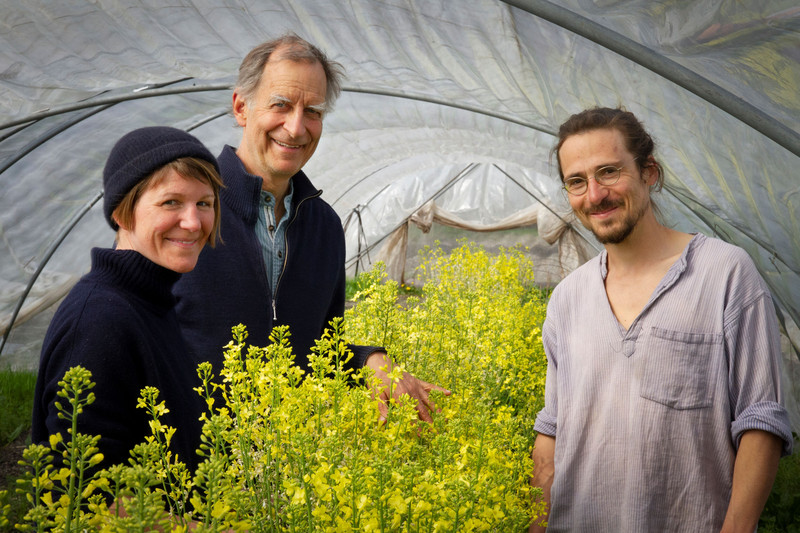Promising for the Future: Seed Work at Obergrashof

Obergrashof farm in Dachau near Munich is steeped in history: Peat was removed from the Dachauer Moos moorland as early as 1870, and forestry and agricultural use of the land began around 1900. Since then, the farm has developed into a multifaceted enterprise that operates in accordance with Demeter guidelines and, in addition to large-scale vegetable cultivation and animal husbandry, also includes a shop, a preschool and plant breeding work. “The seeds of biodynamically developed varieties are stable, which means that they can be open pollinated”, says SAGST project manager Christian Wüst, explaining an important difference to hybrid seeds, which are also widely used in organic farming. “That represents an important step towards increasing food sovereignty and decreasing dependence on the monopoly structuring of the handful of internationally operating seed corporations.” In addition to economic aspects such as reliable yields, qualitative issues – such as taste and digestibility – alongside other considerations also play a role in breeding: What actually nourishes us – even beyond the purely material composition?
For many years, the Obergrashof farm has been breeding new stable vegetable seed varieties, such as cauliflower, kohlrabi, chicory, carrots and radishes, on behalf of Kultursaat e. V., as well as propagating seeds for Bingenheimer Saatgut AG. In the course of the upcoming generational change at the management level, the young non-profit association “Kulturpflanzenentwicklung Obergrashof” would like to inspire new momentum and develop an associative network to expand and secure biodynamic breeding work on the farm. As a first step, they installed a greenhouse in autumn 2022 where the plants from which the seeds are obtained can overwinter frost-free. The necessary financing came from funding provided by SAGST and other foundations as well as a crowdfunding campaign, which covered a considerable portion of the costs – impressive proof of the wide-reaching support from the farm’s community. “SAGST has been supporting the promising, decentralised work of biodynamic plant breeders in Europe’s German-speaking countries via the Zukunftsstiftung Landwirtschaft (Foundation on Future Farming) seed fund for years”, states Christian Wüst. “By funding the greenhouse at Obergrashof, we are reaffirming this commitment and are pleased to be able to contribute to the successful generational change in the breeding work at the farm.”
